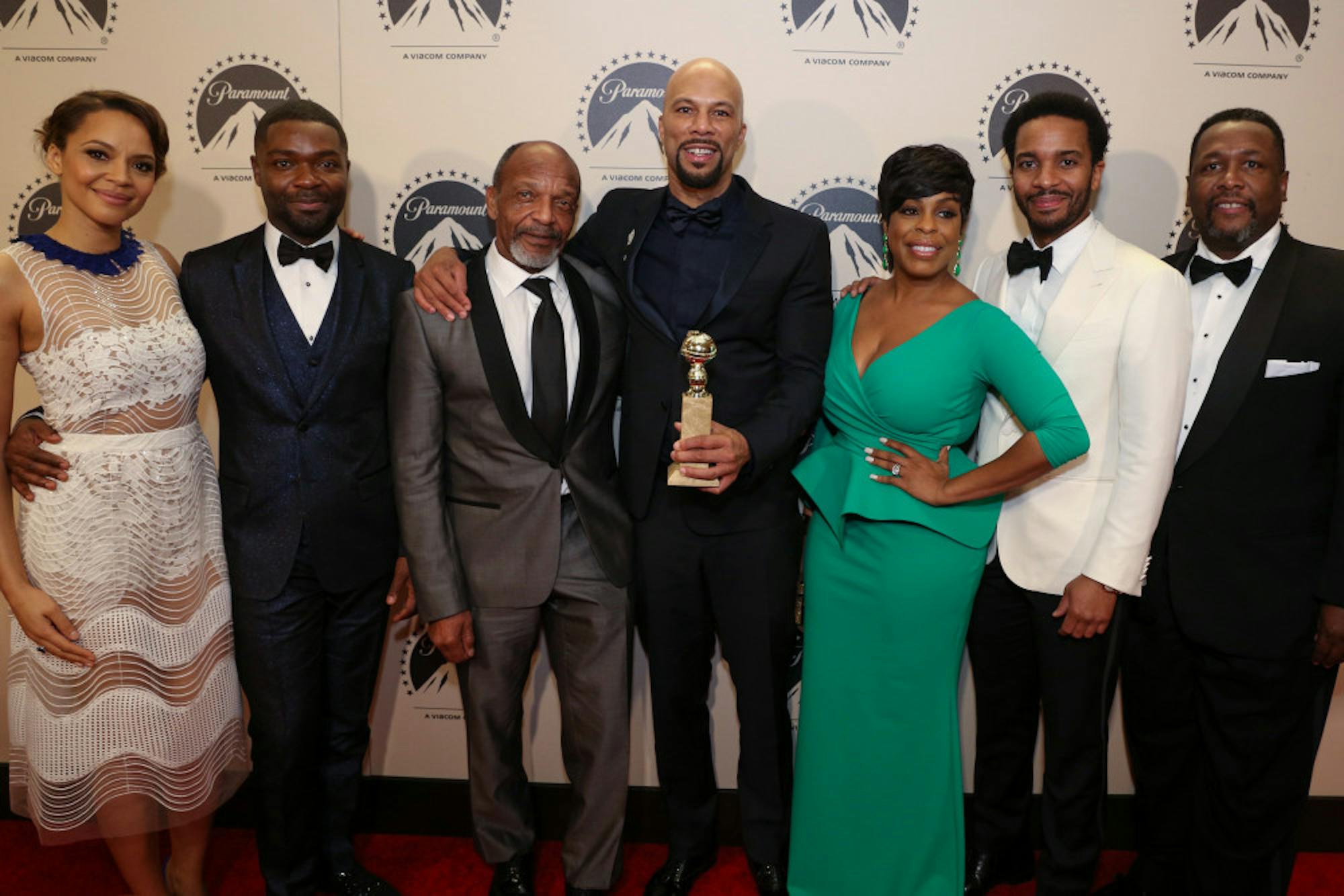For a movie that takes on a larger-than-life man in the midst one of the most triumphant acts of his career as its subject matter -- namely, Dr. Martin Luther King Jr. and the march from Selma to Montgomery, Ala. -- “Selma” finds its greatest highlights in the quiet and subdued moments of its 127-minute run. With a critical eye and a hyper-awareness of mise-en-scene and characterization, director Ava DuVernay makes good use of her powerhouse cast -- which includes David Oyelowo, Carmen Ejogo, Oprah Winfrey, Tom Wilkinson and Cuba Gooding Jr. to name a few -- while making intense dialogue the focus of the picture. Rather than falling into the trap of excessive grandeur and over-the-top, triumphant cheesiness, DuVernay’s “Selma” more closely mimics “Milk” (2008) and “Lincoln” (2012) with its balance of quiet and chaos. It tackles historical subject matter through a narrow and carefully positioned lens.
“Selma” begins with King (Oyelowo) and his wife in a hotel room, getting ready before he accepts his Nobel Peace Prize in 1964.The scene is lit in warm yellow tones, a motif that is carried out throughout the rest of the film, and the characters are framed in medium-close-up and close-up shots. There is an intimacy to the scene, and to the film, that is rarely found in historical dramas of this weight. In fact, characteristically close framing and rapid-fire dialogue leaves scenes nearly claustrophobic. As a result, the audience is invited into the private world and mind of Dr. King himself, and the proximity to a man on the cusp of so much achievement yet intensely aware of the enormous weight which he carries can be uncomfortable. David Oyelowo portrays this balance -- between a public beacon of hope and a man in turmoil -- with grace and radiant warmth. Carmen Ejogo as Coretta Scott King is his cool, crisp counterpart and emotional rock; the two are an even and perfect match onscreen.
The film also succeeds in humanizing its famous subject. The King known to history as an exalted preacher is also depicted in tender moments, rendered near-speechless as he comforts the family of a young black man shot by police following a peaceful protest. The preacher from Mississippi, who led the Civil Rights movement and changed a nation, is not reduced to a figurehead and an idol in “Selma.” Dr. King’s flaws are present. In one scene, he is rendered silent by a conversation with his wife about his multiple extra-marital affairs, presenting a sharp contrast to his normally eloquent manner. The film’s unrelenting desire to drive deeper into his character adds a much needed element to a very human story -- a story that is as much about history as it is about the future.
It is not just the balance between historical milestones and personal battles that makes the story about King and Selma most effective, but also the film’s treatment of those iconic battles. Fortunately, the film is not distracted by one thousand moving parts, and doesn't attempt to give a comprehensive account of the Civil Rights movement or depict the life story of Dr. Martin Luther King Jr. Remarkably, it is able to do both incredible justice by simply focusing in on the march and its preceding events.
“Selma’s" faults are slight and almost unnoticeable; the end credits that roll past several important characters at the end feel premature, leaving them with only a few lines to conclude their screen time. The film has drawn criticism for its "historical inaccuracies" -- namely its depiction of President Lyndon B. Johnson as more bullish than supportive of initial legislation for voting rights. However, critiques of the movie in the New York Times and Politico neglect comparative analysis of other works that examine Johnson's own role. For instance, Bryan Cranston's masterful depiction of President Johnson in the Tony-award winning play "All the Way" (2012) portrays the president's relationship to all legislation -- from voting rights to Medicare -- as aggressive and unrelenting due to his exceptional track record in the Senate, and far from King's close ally. With this honest, if harsh, depiction of another great leader, DuVernay again triumphs.
The picture’s release is perfectly timed; it rides on the heels of national dialogue, frustration and outrage over recent events in Ferguson, Cleveland and New York City and is set to play in theaters through the national holiday named for its subject. Encouraging dialogue by depicting the Civil Rights Movement as succeeding as much through protest as it did through conversations, “Selma” may be more than just revolutionary -- it is necessary viewing.






